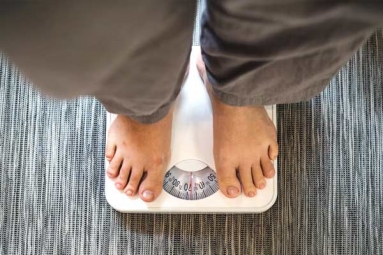
(Image source from: Freepik.com)
Every year, more than one billion people in India endure the scorching summer heat. On May 5th, New Delhi experienced its hottest day of the 2024 season, reaching a temperature of 41.1 degrees Celsius, which is too hot for the human body. In Bihar and Jharkhand, schools are adjusting schedules and offering early summer breaks to students. The heatwave's effects on health are far-reaching and require prompt attention. Prolonged exposure to high temperatures can cause heat exhaustion, dehydration, and even heatstroke, particularly in the most vulnerable populations, such as children, the elderly, and individuals with underlying health conditions like chronic kidney diseases, chronic gastroenteritis, and diabetes. Additionally, high temperatures can take a toll on one's mental health, exacerbating conditions such as anxiety and depression. According to a study published in 2023 by scientists at the University of Roehampton in England, when temperatures exceed 35 degrees Celsius, people tend to breathe more heavily, and their heart rates increase. The study found that at 40 degrees Celsius with 25% humidity, human metabolic rates increased by an average of 35% compared to the baseline, but their core body temperatures did not rise.
If the temperature rises beyond 42.3 degrees Celsius, it can cause irreversible damage to the brain. Dr. Niveditha Alok Swamy, a Consultant in Internal Medicine at SPARSH Hospital in Yelahanka, Bangalore, explained that heat can cause a range of damage to the human body, including neurological impairment. Dr. Swamy has treated patients with various heat-related illnesses, from mild conditions such as heat rash and cramps to more severe cases like heat exhaustion and dehydration, especially in those with underlying conditions such as chronic kidney disease and diabetes. Heat can trigger severe migraines in those who are prone to them, while the elderly and young children are particularly susceptible to heat stroke, which is the most severe heat-related illness and characterized by a body temperature above 40 degrees Celsius. Gautam Menon, Director of the Centre for Climate Change and Sustainability (3CS) and Dean (Research) at Ashoka University, notes that sweating on a hot day, which helps the body lose heat as sweat evaporates, is a natural way for the body to cope with heat. However, excessive heat, particularly with high humidity, can impair the body's ability to regulate its temperature.
Professor Menon explained that extreme temperatures can impact crucial organs. During hot weather, the body tries to regulate its temperature by sweating. However, too much sweating can result in dehydration and imbalances in electrolytes. Similarly, cold temperatures can also challenge the body's thermoregulatory mechanisms.
Fainting, on the other hand, can lead to further damage, causing dizziness, headaches, and muscle wasting. Heat stroke is a serious illness characterized by body temperature above 40 degrees Celsius, which can cause confusion, seizures, and organ failure, requiring immediate medical attention. Other conditions such as heat cramps, heat rash, and exacerbation of pre-existing cardiovascular or respiratory conditions are also common. Heat exhaustion causes profuse sweating, muscle cramps, and other nausea-related symptoms, but heat stroke also changes a person's mental state. The heart beats faster, the skin becomes hot and dry, vomiting increases, and disorientation occurs. High temperatures not only challenge your body, but they also have a huge impact on your mental health.
Dr. Rahul Ratan Bagare, consultant psychiatrist at Apollo Clinic in Biman Nagar, said people taking medication for panic disorders may experience the worst symptoms in hot and humid weather. Stated. “Physiological stress caused by extreme heat can cause sleep disturbances, irritability, and decline in cognitive function. Prolonged exposure to high temperatures can make you feel trapped indoors and make it difficult to find peace. "It can also lead to anxiety and depression," he said. Bagare. A study conducted in New York found that hot days increase the risk of hospitalization for conditions such as substance abuse, mood and anxiety disorders, schizophrenia and dementia. The findings show that students also lose interest and have difficulty learning if they sit in poorly ventilated classrooms or classrooms without proper air conditioning. Drinking plenty of water provides your body with the hydration it needs and allows your body to regulate its own body temperature by evaporating water through sweating. "It's also important to reduce direct exposure to extreme heat. This means staying indoors during the warmest parts of the day, reducing physical activity, wearing a hat or umbrella when outdoors, and wearing loose-fitting, bright colors." This can be achieved by wearing clothes,” Menon added.
Dr. Bagare said that to minimize the devastating effects hot weather has on the body, it is important to stay hydrated and seek out cool environments to prevent overheating. Limit your time outdoors during the hottest parts of the day. "The most important thing for your mental health is not to lose hope, even when you think the rain will soon bring some relief," he says. As climate change wreaks havoc around the world, with temperatures rising and extreme weather events becoming more frequent and intense, people need to take better care of themselves and keep themselves cool and mentally healthy. can.











